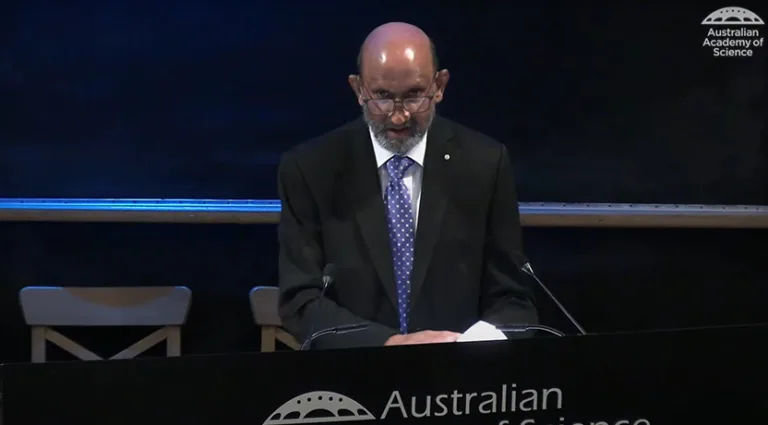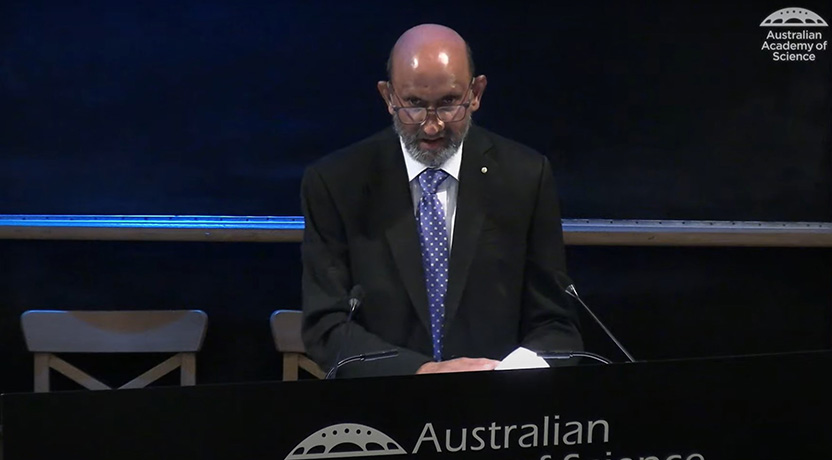
International Collaboration in Science: A Matter of Strategic National Interest
November 14, 2023

Tuesday, 14 November 2023
In 1963, the Australian Academy of Science hosted an international symposium on water resources, use, and management. It was called the most important symposium organized by the Academy at the time. Fast forward to 2023, and the Academy believes that the National Symposium held this year may surpass the significance of the 1963 event.
The Global Challenges
The keynote address emphasized the challenges facing the global research system. These challenges are not only bigger, harder, and more complex but also more politically charged than ever before. Solutions to these challenges require global collaboration and cooperation.
Technological advancements like artificial intelligence, advanced robotics, and quantum technologies, which were once the stuff of science fiction, now present both opportunities and strategic competition. Collaboration in science is crucial to address these challenges and deliver the necessary answers for governments and societies.
The Importance of Collaboration
Australia, a relatively small market with low investment in research and development, relies heavily on international collaboration to fuel its scientific advancements. The country contributes significantly to global science through international collaborations and relies on the expertise of researchers from around the world.
International collaborations have played a crucial role in major scientific achievements. The development of COVID-19 vaccines within a year is a prominent example of the benefits of international collaboration. The Square Kilometre Array project, a collaborative effort involving multiple countries, exemplifies how collaboration can deliver large-scale infrastructure that no single country could achieve alone.
Securing National Interests
While there is a need to address security concerns in an ever-changing geopolitical environment, it is equally important not to hinder collaboration. The proposed new legislation, the Defence Trade Controls Amendment Bill 2023, aims to strengthen Australia’s defence export control framework. However, it may have unintended consequences that restrict scientific collaboration.
Restrictions on international collaborations could limit access to knowledge, hinder research opportunities, and reduce Australia’s ability to attract global talent. The address emphasized the importance of finding a balance between maintaining security and fostering international collaboration.
The Benefits of Collaboration
International collaboration provides numerous benefits to Australia’s national interest:
- Access to the majority of global knowledge to drive innovation and advancements in critical areas.
- A research workforce enriched by international talent, regardless of their country of origin.
- Opportunities to participate in and benefit from global infrastructure projects.
- Evidence-based decision-making guided by the best scientific insights.
- Enhanced science diplomacy, contributing to political stability.
- Building networks and capacity in the region, leading to mutual benefits.
Maintaining a Balanced Approach
As Australia revises its research system to respond to security threats, it is essential to carefully consider the impact of any proposed measures on international scientific collaborations. While ensuring security is crucial, it is equally vital to preserve the benefits of collaboration and avoid overly restrictive policies.
The address concluded with a call to maintain an evidence-informed approach, taking into account the multiple stakeholders and the complex interplay between security and research collaboration. Such an approach will help protect national interests while continuing to foster global scientific progress.